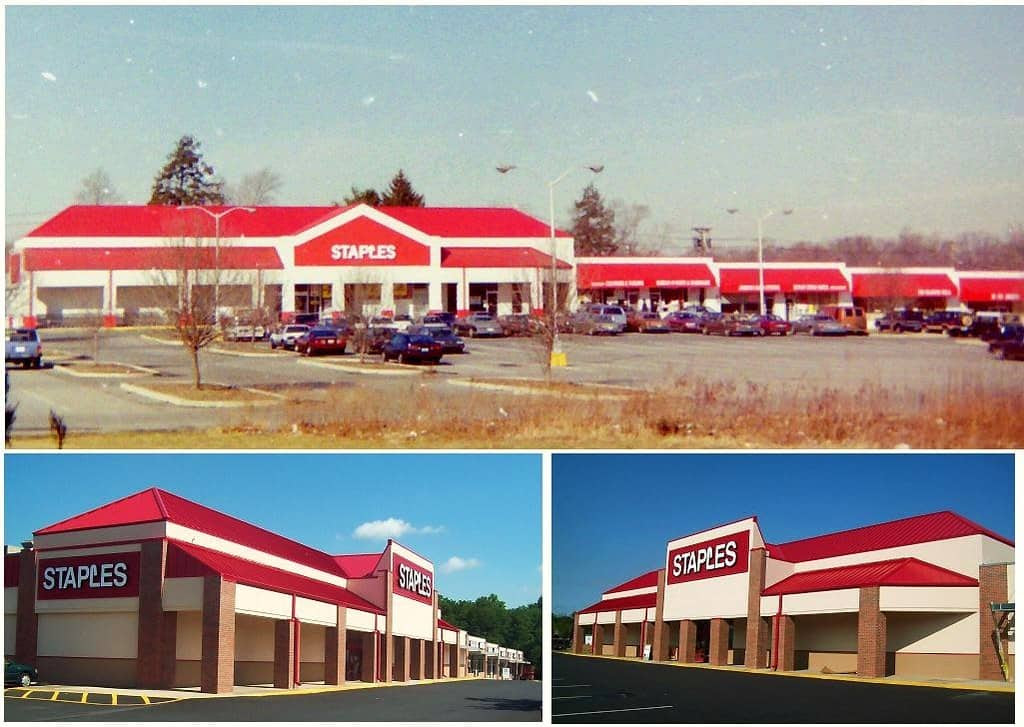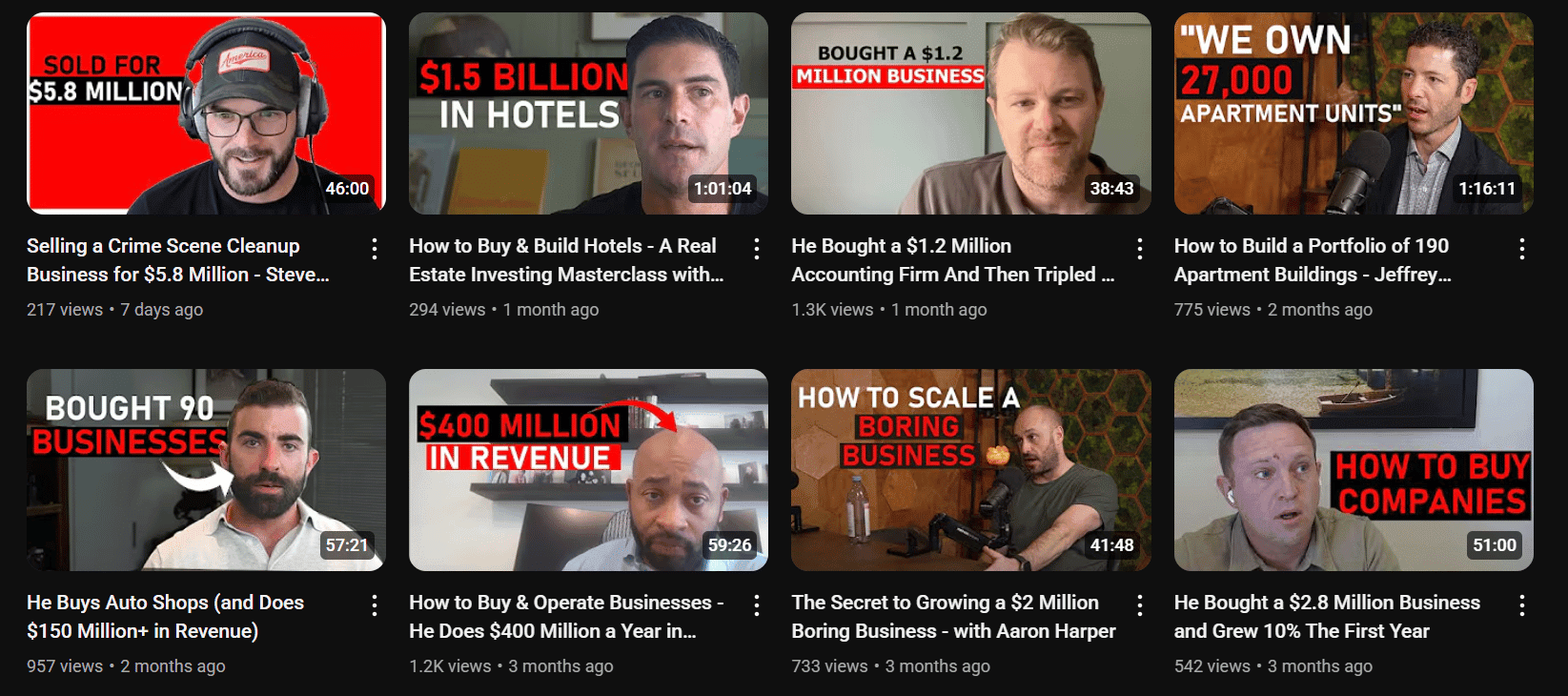🔑 They invested $4 million to build a billion dollar company
Welcome to The Business Buying Academy with Sieva Kozinsky. Here's what we have in store for you today:
- The sexiest venture investment of the 80s: Office supplies
- Don't make this business buying mistake
- If you want to buy a business, we'll each you
🔑 Turning $4 million into a billion-dollar company
"It's like a supermarket - but for office supplies!"
If a VC heard a pitch like that today, they're throw the founder out of their office immediately.
But back in the 1980s, this was the start of a brilliant venture investment.
In 1986 a new venture fund called Bain Capital met with two supermarket owners in Boston.
They wanted to start a new retail concept:
It would be just like a supermarket, except for supplying businesses with paper, pens, envelopes, and other office supplies.
It was called Staples.
The idea for Staples originated in 1985, while Thomas Stemberg was working on a proposal for a different business. He needed a ribbon for his printer, but was unable to obtain one because his local dealer was closed for the Independence Day holiday. A frustration with the reliance on small stores for critical supplies combined with Stemberg's background in the grocery business led to a vision for an office supply superstore.
- Staples company history
Bain liked the idea.
They led the $6 million round and invested about $4 million themselves.
Within a few years, Staples' growth exploded.
They went public in 1989, just 3 years after Bain invested, and raised another $37 million to continue expanding.
Within a decade of the initial investment, Staples expanded to 1,100 stores worldwide.
It's one of the fastest-growing retail concepts of all-time.

What's interesting to me about Staples is not that it invented a new product or category:
It simply made an already-demanded product more available.
The market for office supplies was clearly growing as the US economy shifted from manufacturing to a service-based economy in the 1970s and 80s.
That meant more people working office jobs.
Which meant more paper, pens, and staplers.
But the options for buying office supplies were pretty bad: Every other store just treated office supplies like an afterthought. Supermarkets maybe had a small section for notebooks and pens. Businesspeople couldn't rely on that. Amazon didn't exist yet.
What does Staples teach us about investing?
When we think of venture capital today, most of us think of revolutionary new ideas.
You must invent something totally new to attract venture capital.
Yet, Staples didn't do that - but they are one of the most successful venture investments ever.
I've written about this several times, but I've personally moved away from angel/venture investing and towards investing in boring, cash-flowing concepts.
Instead of trying to invest in a totally new and unknown category, ask yourself:
- Where can I invest my money to help in-demand products flow to customers more easily?
- In a particular industry, what are the bottlenecks for distribution? Where can I invest my capital to fix those bottlenecks?
- Does the business I'm about to invest in offer a product that's already demanded? Or are they counting on creating new demand for an unknown product?
🔑 Don't make this mistake when buying a business
Buying a business without getting a quality of earnings report is like buying a house without a home inspection. You’re taking a big bet without knowing what you’re buying, and it could be a disaster.
Even if the seller gives you all their financial statements, they often have very bad bookkeeping.
So, what should be in your QOE and financial due diligence package? Here's what today's sponsor Appletree says about their QOE reports:
✅ Proof of Cash
Are revenues real? We rebuild the last 1-2 years using bank statements to verify that reported earnings arrived in the bank account.
✅ Addbacks That Actually Make Sense
We normalize SDE or EBITDA with logic, not wishful thinking. The hand-waving. No “adjusting away” real costs just to make numbers look better.
✅ Working Capital Analysis
Avoid the “Post-Close Surprise” where you’re suddenly short $150k in working capital. We calculate what the business needs to operate smoothly.
✅ Forward Looking Projections
We model post close cash flow and debt service coverage under flat, growth, and decline scenarios – so you know how risky the deal really is.
If you’re sending out LOI’s or nearing a deal, don’t go in blind. Talk to Appletree for a pragmatic, thorough Quality of Earnings report – built by people who’ve bought businesses themselves.
🔑 Want to buy a business? Pay attention
I've been interviewing dozens of people over the last year.
My goal: Assembling the greatest collection of business buying lessons from people who have done it.
Their businesses range from $1 million accounting firm to $100 million manufacturing businesses, and everything in between.
We've got self-funded searchers, private equity partners with billions under management, and horizontal holding company owners looking to add the next great business to their portfolio.
No matter what type of business you're looking to buy, I probably have a story for you. Check out the interview below.

Have a great day,
Sieva
P.S. - Are you hiring? Get started with top global talent from Somewhere (I'm a customer and investor)
Disclaimer: nothing here is investment advice. Please do your own research. The information above is just for information and learning.

